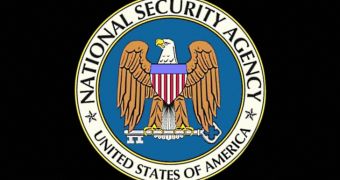The National Security Agency operates a program called Dishfire that enables it to collect nearly 200 million text messages per day.
According to The Guardian, the NSA sees this as a “goldmine to exploit” for all kinds of personal data. The program is used to extract the senders’ and recipients’ personal data, including location information, financial activity, contact details and more.
Information comes from one of Edward Snowden’s leaked files. The slide, dated June 2011, reads “SMS Text Messages: A Goldmine to Exploit.” It describes Dishfire as a “rich data set” with a high impact due to its usage increase. The file notes that notifications sent to phones from companies such as airlines, healthcare providers and banks are particularly useful.
The NSA’s British counterpart, the GCHQ, uses the database created by the NSA to search metadata from local numbers.
The files also reveal that Dishfire collects and stores everything it can, rather than just data coming from existing surveillance targets, something the NSA has been known to do with other types of data as well.
On average, The Guardian reports, the NSA extracts 5 million missed-call alerts (for use in contact-chaining analysis), details on 1.6 million border crossings a day (from network roaming alerts), over 110,000 names (from electronic business cards) and over 800,000 financial transactions (through text-to-text payments or linking credit cards to phone users).
Furthermore, the NSA can extract geolocation data from about 76,000 texts per day. The file reveals that communications from US phone numbers were removed from the database, but data pertaining to users from other countries, including the United Kingdom, was kept.
In the past months, many have focused on the metadata collection program. The White House review panel advised the president to put a stop to this particular NSA tool, since there was no proof it ever helped prevent any type of terrorist activity. Furthermore, the panel also said that the president should pay more consideration to the privacy rights of foreigners, even if they are not protected by the US Constitution.
The NSA commented on the report and said that the implication that the agency’s collection was arbitrary and unconstrained was false, as the agency’s powers were directed only towards foreign intelligence targets.

 14 DAY TRIAL //
14 DAY TRIAL //